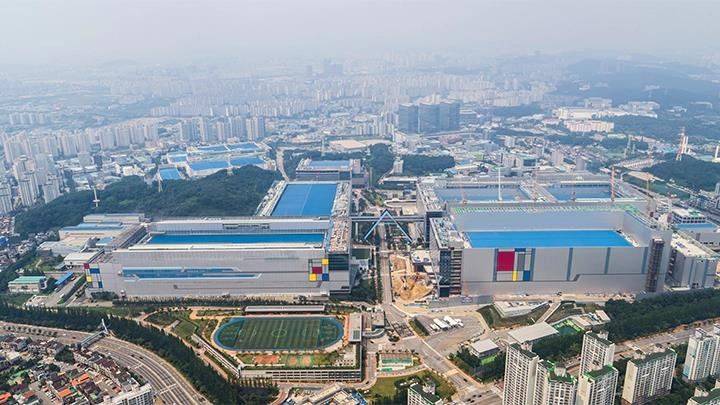As part of an aggressive push by the country to take a lead in crucial technologies, Samsung Electronics said on Wednesday that it plans to invest 300 trillion Korean won, or $228 billion, in a new semiconductor complex in South Korea that the government claims will be the largest in the world.
A Samsung spokesperson informed CNBC that the investment will occur over the course of 2042.
In order to encourage growth in key areas, the government of South Korea wants to bring together its largest technology companies. By 2026, the private sector will have invested 550 trillion won in areas such as chips, displays, batteries, and electric vehicles, according to the government’s announcement on Wednesday.
However, semiconductors, which have increasingly become a geopolitical focal point and are crucial components in everything from smartphones to automobiles, receive the majority of attention. It is thought that South Korea’s expansive move is a way to catch up with the aggressive chip investments made by the United States.
In a briefing, Yoon’s spokesperson Lee Do-woon stated, “President Yoon Suk-yeol said, while it’s important for a high-tech industry such as semiconductors to grow through a mid-to-longer term plan, we must swiftly push ahead with these plans as if it’s a matter of life and death, given the current situation of global competition.”
Samsung will construct a brand-new 300 trillion won chip complex just outside of Seoul, the South Korean capital.
In order to establish a “semiconductor mega cluster,” the government of South Korea wants to connect Samsung’s chip facilities to those of other businesses in the region. The goal is to connect chip design and manufacturing across the semiconductor supply chain.
Lee Chang-yang, South Korea’s trade, industry, and energy minister, stated, “In selecting the new locations, we’ve taken into consideration the synergy effect that could be seen from existing semiconductor clusters.”
According to the South Korean government, five chip manufacturing facilities will be built in the cluster.
Samsung is the largest memory chip manufacturer in the world. These are semiconductors that are used in servers and laptops. Additionally, SK Hynix, the second-largest memory chip manufacturer, is based in South Korea.
Rivalries in semiconductors are getting hotter Semiconductors have become a highly politicized technology, which has led to a complicated dynamic between allies driven by the United States’ dual strategy.
On the one hand, Washington has pushed to bring chip manufacturing back to the United States and has received commitments to build factories from companies like Samsung and TSMC, Taiwan’s largest contract chipmaker.
Then again, the U.S. has looked to keep down China’s semiconductor advancement. China was prevented from obtaining or manufacturing crucial chips, components, and the tools necessary to make them by broad regulations that Washington enacted the previous year.
The United States has attempted to forge alliances with South Korea, Japan, Taiwan, and the Netherlands in order to hinder China’s access to essential technology in its technology war with China.
However, at the same time, the United States of America signed the Chips and Science Act, which provides $52 billion in support for chip-producing businesses in an effort to attract investment and improve the nation’s position in the semiconductor industry.
Even as they seek partnerships, this has resulted in a competitive environment among the allied nations.
“As of now, every country is trying to build its own competitive strengths. There is a flood of tax breaks and capital commitments from governments seeking to onshore semiconductor production,” Pranay Kotasthane, chairperson of the high tech geopolitics program at the Takshashila Institution, told CNBC.
Samsung’s manufacturing push:
The government’s support could help Samsung catch up to TSMC, the largest contract chipmaker, if the planned incentives don’t work or the semiconductor industry sees a downward trend in the investment cycle. TSMC makes the absolute most progressive semiconductors on the planet for organizations like Apple.
Samsung’s contract chipmaking, or foundry, business is known for making memory chips and consumer electronics.
The company presented an ambitious plan in October to produce the world’s most advanced chips by 2027.
After Samsung announced its plans to invest in chips, the company’s shares closed 1.3 percent higher in South Korea on Wednesday.
- Mac Miller’s Long-Awaited Album ‘Balloonerism’ Drops Soon - November 22, 2024
- WhatsApp Announces Upcoming Voice Message Transcription Feature - November 22, 2024
- Google doodle celebrates the Lebanon’s Independence Day - November 22, 2024





